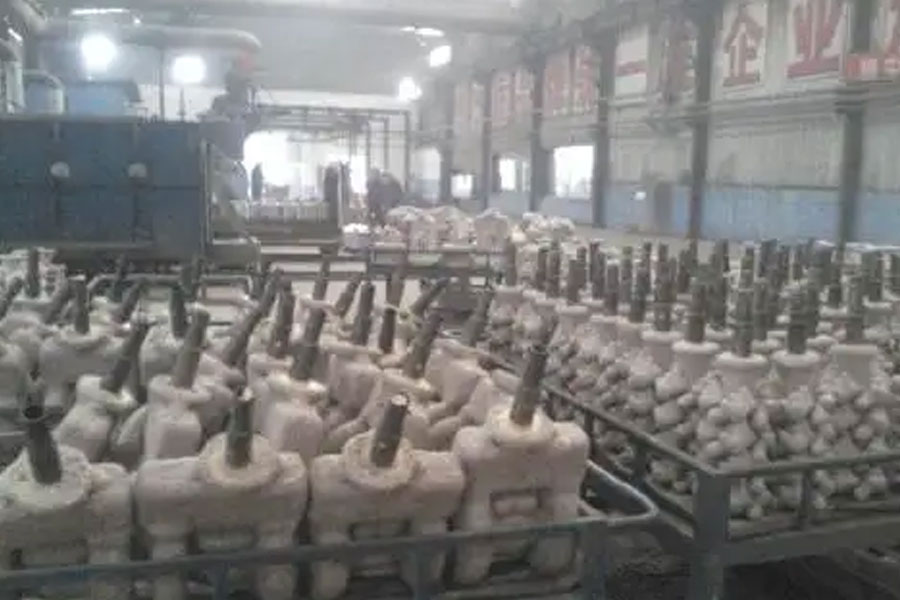As a senior expert in the Japanese foundry industry, it is not the first time for Mr. Keiji Tamura to come to China, and every time he comes to China, he cannot help but appreciate the great progress made by the Chinese foundry industry. Like Mr. Tamura, experts and scholars from many countries and regions have specially rushed to Shanghai to participate in this exhibition. The interaction between different skin colors and different languages has become a beautiful scene. “We have witnessed the vigorous development of China’s foundry industry, which is very amazing.” In the eyes of these international scholars, the environment in which China’s foundry industry is located is enviable. Mr. Tamura said: “At present, China’s economy is still in a period of growth. In addition to the automobile industry, wind power, nuclear power, agricultural machinery, construction machinery and other industries continue to maintain rapid development. When I visited the exhibition, I found that the development of wind power, in particular, is very Quick. And speaking of something special, there is a company that does low-pressure casting of aluminum alloys, which is not seen in Japan.”
Mr. Tamura also said, “Comparatively speaking, the Japanese foundry industry is very dependent on the automobile industry, but the current economic downturn and the decline in automobile production have also hit us hard. Unbelievably, the sales volume of automobiles in China is It is still rising; other fields have not experienced much decline.” According to some data, the transfer of the foundry industry in Europe and the United States has also brought opportunities for the improvement of China’s foundry industry. Mr. Tamura also saw this. He said that one-third of the world’s castings are already made in China, and there will be more and more castings that reach the world’s advanced level in so many products. In his impression, there were many trucks and heavy-duty castings in China earlier; but with the development of passenger cars, lightweight and miniaturized castings will also put forward newer and higher requirements for casting technology, which also promotes the improvement of technology.
In addition, when the financial crisis continues, more companies will choose local Chinese companies to place orders. At the same time, more and more technical experts are willing to come to China for technical guidance, which is good news for the development of the industry and enterprises. Of course, Mr. Tamura also raised hopes for the Chinese foundry industry. He said, “There are also some areas that China needs to improve. For example, the number of 20,000 to 30,000 enterprises is surprising, and these enterprises are not all necessary to exist. Especially as a foreigner, we want to understand the Chinese foundry industry, but there is nowhere to start. , I hope that China’s foundry industry can have a systematic operating organization for the international community to recognize China’s foundry industry.”
According to reports, there are more than 3,000 foundry companies in Japan, and their monthly output of castings is about 200-300 tons, and factories with an output of less than 100 tons cannot be called enterprises at all. “The entry threshold for Japanese foundries is very high, and the regeneration and availability of the environment are very important. Those companies that do not have the ability to improve and manage the environment cannot survive.” He believes that the environmental awareness of Chinese foundry companies needs to be enhanced. It’s about the future. It is not difficult for people who have been to Japanese factories to find that dirty, messy, and poor production environments are absolutely not allowed. Whether it is dustproof, noise, waste water, or waste gas treatment, it is an important issue for Japanese foundry companies. “Irresponsibility for the environment is even more unacceptable.” And this hurdle for Chinese companies has just begun.
Huang Tianyou, vice chairman of China Foundry Association, said, “The access system of China’s foundry industry has been put on the agenda. According to relevant regulations, after elimination and rectification, enterprises that have achieved large-scale and environmentally friendly production remain, and those with low-end production capacity and poor environmental protection are left. Enterprises will be eliminated.” There is no doubt that China should do more in this regard. When more and more young people are leaving the foundry industry and prefer IT, fashion and finance. Mr. Tamura said earnestly: “As the most basic industry, casting requires high technology more than any industry, more talent gathering, and more support from all sectors of society. In this regard, China’s current situation is reassuring. We After seeing the efforts of China Foundry Association and Chinese foundry enterprises, we believe that the future of Chinese foundry will be stronger.”

